第43章 ON MR.POPE AND SOME OTHER FAMOUS POETS(1)
I intended to treat of Mr.Prior,one of the most amiable English poets,whom you saw Plenipotentiary and Envoy Extraordinary at Paris in 1712.I also designed to have given you some idea of the Lord Roscommon's and the Lord Dorset's muse;but I find that to do this Ishould be obliged to write a large volume,and that,after much pains and trouble,you would have but an imperfect idea of all those works.Poetry is a kind of music in which a man should have some knowledge before he pretends to judge of it.When I give you a translation of some passages from those foreign poets,I only prick down,and that imperfectly,their music;but then I cannot express the taste of their harmony.
There is one English poem especially which I should despair of ever making you understand,the title whereof is "Hudibras."The subject of it is the Civil War in the time of the grand rebellion,and the principles and practice of the Puritans are therein ridiculed.It is Don Quixote,it is our "Satire Menippee"blended together.Inever found so much wit in one single book as in that,which at the same time is the most difficult to be translated.Who would believe that a work which paints in such lively and natural colours the several foibles and follies of mankind,and where we meet with more sentiments than words,should baffle the endeavours of the ablest translator?But the reason of this is,almost every part of it alludes to particular incidents.The clergy are there made the principal object of ridicule,which is understood but by few among the laity.To explain this a commentary would be requisite,and humour when explained is no longer humour.Whoever sets up for a commentator of smart sayings and repartees is himself a blockhead.
This is the reason why the works of the ingenious Dean Swift,who has been called the English Rabelais,will never be well understood in France.This gentleman has the honour (in common with Rabelais)of being a priest,and,like him,laughs at everything;but,in my humble opinion,the title of the English Rabelais which is given the dean is highly derogatory to his genius.The former has interspersed his unaccountably-fantastic and unintelligible book with the most gay strokes of humour;but which,at the same time,has a greater proportion of impertinence.He has been vastly lavish of erudition,of smut,and insipid raillery.An agreeable tale of two pages is purchased at the expense of whole volumes of nonsense.
There are but few persons,and those of a grotesque taste,who pretend to understand and to esteem this work;for,as to the rest of the nation,they laugh at the pleasant and diverting touches which are found in Rabelais and despise his book.He is looked upon as the prince of buffoons.The readers are vexed to think that a man who was master of so much wit should have made so wretched a use of it;he is an intoxicated philosopher who never wrote but when he was in liquor.
Dean Swift is Rabelais in his senses,and frequenting the politest company.The former,indeed,is not so gay as the latter,but then he possesses all the delicacy,the justness,the choice,the good taste,in all which particulars our giggling rural Vicar Rabelais is wanting.The poetical numbers of Dean Swift are of a singular and almost inimitable taste;true humour,whether in prose or verse,seems to be his peculiar talent;but whoever is desirous of understanding him perfectly must visit the island in which he was born.
It will be much easier for you to form an idea of Mr.Pope's works.
He is,in my opinion,the most elegant,the most correct poet;and,at the same time,the most harmonious (a circumstance which redounds very much to the honour of this muse)that England ever gave birth to.He has mellowed the harsh sounds of the English trumpet to the soft accents of the flute.His compositions may be easily translated,because they are vastly clear and perspicuous;besides,most of his subjects are general,and relative to all nations.
His "Essay on Criticism"will soon be known in France by the translation which l'Abbe de Resnel has made of it.